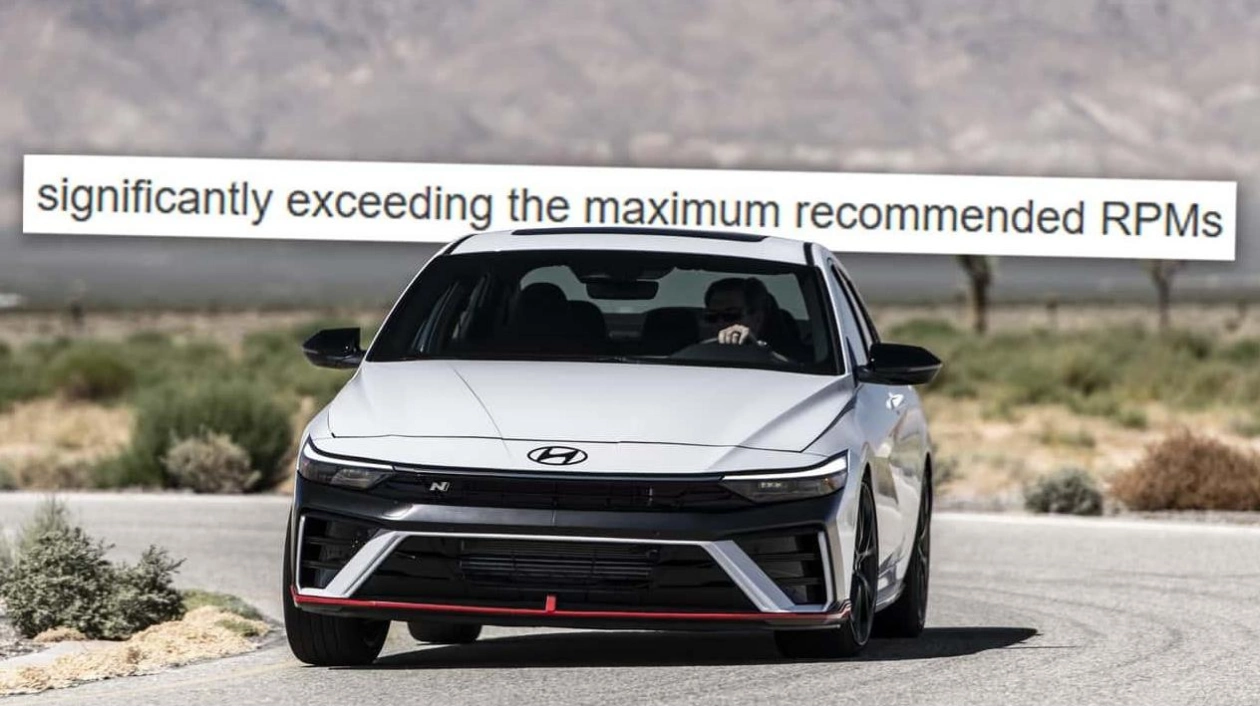The Hyundai Elantra N stands out as one of the most budget-friendly and exhilarating sporty sedans available today. However, it's not without its flaws. The vehicle has faced two recalls due to mechanical problems, has been flagged by authorities for its excessively loud stock exhaust, and now, it appears that Hyundai may not be honoring warranties for at least one owner's damaged car. At least, that's the impression at first glance.
CTV News Toronto reports that college student Christian Matzoros was driving home in his Elantra N when the engine suddenly failed at 46,000 kilometers (28,580 miles). 'It just stopped. I was stepping on the gas pedal and it wasn’t moving,' he recounted to CTV. Matzoros had owned his Elantra N for two years, during which it had visited Toronto Motorsports Park multiple times without any prior issues. The unexpected engine failure left Matzoros understandably frustrated, but he had an extended warranty from Hyundai that he believed would cover the damage.
However, when Matzoros brought the car in for service, the situation wasn't straightforward. After examining the vehicle's telemetry data recorded in the ECU, technicians at the Hyundai dealership concluded that the car had been subjected to abuse. A statement from the automaker to CTV claimed that the engine 'experienced conditions exceeding its designed operational limits.' While specifics beyond this were not detailed to CTV, further information has since been provided by Hyundai.
Hyundai informed Motor1 that the engine had been over-revved and had its timing jumped. '[ECU data] determined the engine experienced conditions beyond its intended design limits which resulted in undue stress and failure of the valve timing system,' a Hyundai spokesperson confirmed in a statement to Motor1. 'This damaged the valves in the cylinder head due to contact with the pistons while in motion.' The company further explained how this could have occurred, stating that 'the only possible way to rev the engine beyond the calibrated limit is to force the transmission into a lower gear than mechanically safe at a high rate of speed, and/or modification of the engine control unit software to allow for limits beyond manufacturer specification.' In essence, Hyundai claims the driver either money-shifted the engine multiple times or altered the ECU to permit a higher redline.
Hyundai suspects the latter, noting that 'Upon inspection, the calibration in the Engine Control Unit did not match that of factory origin.' It's important to note that damage resulting from modifying your car's ECU is not covered under the warranty. If Hyundai maintains its stance that the car was abused, Matzoros will face a $10,000 CAD bill for a new engine. The company asserts that it has provided Matzoros with a 'full explanation' regarding the situation and the rationale behind its decision, which likely mirrors the information shared with Motor1.






